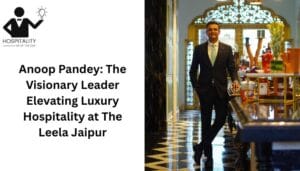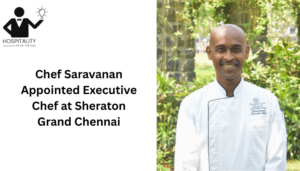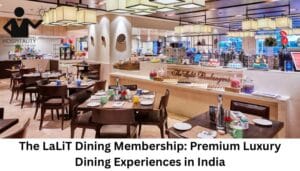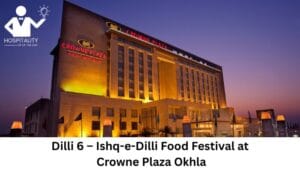Ask the Experts: Key Marketing Trends Driving the Hospitality Industry
Team
April 1, 2025
4 min read

In today’s hospitality landscape, marketing plays a pivotal role in shaping guest perceptions, driving bookings, and building brand loyalty. More than just promotions, it is the bridge between hotels and travelers, leveraging technology, personalization, and digital engagement to create meaningful connections. From AI-powered guest experiences to influencer-driven storytelling, marketing strategies continue to redefine how luxury hospitality evolves. In this expert round-up, industry leaders share insights on the latest trends, the impact of innovation, and the future of guest engagement in a rapidly changing world.

Ritu Solanki, Marketing and Communication Manager, Anantara Jewel Bagh Jaipur Hotel
Luxury hospitality today transcends lavish stays, focusing on personalization, exclusivity, and effortless experiences where travelers seek stories, not just rooms—whether it’s a private palace tour, a starlit chef’s table, or a bespoke wellness retreat. Yet, true luxury is also about responsibility, with solar-powered resorts, zero-waste dining, and meaningful community engagement now essential rather than optional. Conscious hospitality has become the gold standard, ensuring indulgence aligns with values. Seamlessly integrated technology enhances this experience, with AI tailoring stays before arrival—adjusting lighting, scent, and temperature to individual preferences—creating an invisible yet indispensable layer of service. Modern luxury is no longer about excess but about meaning, connection, and the emotions an experience evokes.

Ms. Manali Khatavkar, Marketing & Communications Manager, Novotel Visakhapatnam Varun & The Bheemili Resort Managed by Accor
To stay ahead, hotels must embrace modern trends that cater to evolving traveler preferences, from authentic local experiences and innovative culinary offerings to event-driven travel. Unique food and beverage experiences, such as themed bar takeovers and curated wine-and-cheese pairings, attract guests, while sustainability, social media appeal, and the rise of “bleisure” travel underscore the need for integrated work-life amenities. AI-driven personalization, including chatbots for seamless communication, enhances guest interactions while maintaining a human touch. To optimize revenue, hotels should implement flexible pricing strategies, offering premium rates and exclusive packages during peak seasons while leveraging targeted promotions, personalized discounts, and themed events in slower periods. Collaborations with local businesses and event organizers further drive year-round bookings, ensuring sustained profitability and an enriched guest experience.

Vartika Dikshit, Public Relations Manager Taj Hotels
Hotels looking to thrive in the evolving hospitality landscape must adopt modern marketing trends that enhance guest convenience and engagement, from AI-powered chatbots and mobile applications to digital room keys and self-check-in for a seamless experience. Voice-controlled assistants and instant messaging improve communication, while social media marketing and influencer collaborations boost brand visibility. Continuous tech training ensures staff stay ahead of innovations, and online reputation management strengthens credibility through proactive review monitoring. Leveraging AI and technology optimizes guest satisfaction and revenue, with predictive analytics assisting in pricing, AI-driven maintenance forecasting preventing disruptions, and real-time sentiment analysis refining services. Smart staff scheduling and big data analytics enhance efficiency, while local collaborations, event-based promotions, and targeted marketing drive year-round profitability. By engaging niche markets, aligning with local events, offering flexible booking policies, and running interactive social media campaigns, hotels can maintain a strong market presence and elevate guest experiences.

Sonal Ram, Marketing & Communications Professional
Hotel marketing revolves around personalization, authenticity, and digital engagement, with AI-driven guest profiles tailoring offers and experiences while influencer collaborations and user-generated content build credibility. Short-form videos on platforms like TikTok and Instagram Reels capture attention, and direct booking incentives, such as loyalty perks and exclusive deals, reduce reliance on OTAs. Sustainability plays a crucial role, as eco-conscious travelers prefer hotels showcasing green initiatives. Hyperlocal experiences, including partnerships with local businesses, foster deeper guest connections and differentiation. Marketing strategies must align with location, target audience, and business model for maximum impact. Technology enhances hospitality by improving convenience while maintaining the human touch, with AI chatbots providing instant support, dynamic pricing optimizing revenue, and personalized guest journeys boosting satisfaction and loyalty. Augmented and virtual reality enable guests to explore hotels before booking, while mobile integration streamlines check-ins, digital keys, and room controls. Social listening tools track guest feedback for proactive service improvements, but technology should enhance rather than replace genuine hospitality, ensuring innovations align with brand identity and guest expectations.

Jaya Acharya, Director of Marketing & Communications at The St. Regis Goa Resort
In an era where guests seek more than just accommodation, the hospitality industry stands at the crossroads of innovation and experience, with seamless personalization, immersive storytelling, and sustainability shaping the future of hotel marketing. At The St. Regis Goa Resort, AI-powered recommendation engines tailor stays to individual preferences, while the Bonvoy loyalty program uses predictive analytics to curate bespoke travel experiences, fostering deep guest engagement. Immersive technology, including VR and AR, is transforming how travelers interact with brands, with our VR Postcards campaign offering a rich preview of future stays. Luxury hospitality today is about storytelling that evokes emotional connections, as seen in our signature Afternoon Tea Ritual and personalized butler services, which craft deeply personal and unforgettable experiences. Social commerce and influencer-driven narratives have reshaped how travelers connect with luxury hotels, with AI-powered sentiment analysis refining our approach to delivering effortless luxury. Artificial intelligence and automation set new benchmarks for service excellence, with dynamic pricing models optimizing revenue through real-time data, ensuring precision-driven strategies that balance profitability and guest satisfaction. By embracing innovation while honoring heritage and personalized luxury, The St. Regis Goa Resort continues to redefine the modern travel experience.








